As the climate crisis intensifies, the connections between environmental and human health are becoming increasingly critical. Climate change is driving extreme weather events, threatening food and water quality, and spreading vector-borne diseases. Experts project that these impacts could push 44 million additional people into poverty by 2030 and displace 1.2 billion people by 2050[1].

Beth Thompson, Chief Strategy Officer, Wellcome Trust
Wellcome Trust, a global charitable foundation and member of the Philanthropy Asia Alliance, is dedicated to using science and research to tackle these urgent challenges and safeguard a liveable future. In this exclusive feature, Beth Thompson, Chief Strategy Officer at Wellcome Trust, explores the foundation’s focus on the intersection of climate and health in Asia, and how philanthropy can drive tangible impact in this vital area.
PAA: The climate crisis is also a health crisis. What are some of the most critical climate and health challenges that Wellcome Trust is focused on addressing, particularly in Asia?
Beth: We are working towards a healthier and more sustainable world where local communities and national governments are fully equipped to use evidence-based interventions to tackle climate-related health issues everywhere.
For example, extreme heat – a growing health threat – can affect our ability to regulate our temperature and can be especially challenging for elderly populations, infants, and outdoor workers, potentially leading to heat exhaustion and heat stroke. But we currently lack a detailed understanding of how this differs depending on your physiology and environment and what we can do about it. This is why we are supporting teams composed of researchers, civil society, and policy stakeholders to, for example, better understand the health impacts of climate change on precarious outdoor workers in urban megacities in Vietnam so that we can come up with tailored solutions.
We are also supporting researchers to investigate different ways to manage and limit the health effects of heat in the communities that need effective interventions. One team is assessing the effectiveness of affordable, sunlight-reflecting cool-roof coatings in reducing the impact of extreme heat on vulnerable populations by keeping indoor temperatures cool.
These are just some of the studies we’re funding to gather evidence and, critically, to inform policy. This focus on real-life change is at the heart of all our climate and health research.
PAA: Your recent report with Climate Lead outlined potential pathways for philanthropic engagement in the growing field of climate and health. What do you see as the most promising opportunities for philanthropy to drive tangible impact in these areas?
Beth: Philanthropy can play a critical role in efforts to address the urgent and systemic challenges of the climate crisis. Tackling climate and health challenges requires experts from many different disciplines to work together, breaking down disciplinary silos. Philanthropy is in a unique position to help convene stakeholders from community groups to researchers to policymakers. It can challenge the current ways of working, stimulate greater collaboration, and introduce different perspectives to help solve these global challenges.
The climate crisis also requires both urgent and long-term funding. Philanthropic funders can act quickly and boldly, taking action that will catalyse public and private investment. There are plenty of examples where this is already being done with great success, such as the Clean Cooling Collaborative. Our report with Climate Lead highlights organisations addressing climate change across Asia, from reducing air pollution to supporting community-led farmers – all areas where philanthropy can achieve tangible impact.
Philanthropy’s involvement can help drive responsible climate action in the real world and offer practical solutions to address climate-related health issues.
PAA: Are there any upcoming initiatives from Wellcome Trust that you’d like to share with our PAA members?
Beth: Climate change is harming people’s health. In response, more philanthropic organisations are supporting efforts to help change this. To ensure that the climate and health field is making the most impact possible, Wellcome is strengthening collaboration through initiatives like the joint report and a series of funder convenings to help identify and align on key priorities.
Building on these efforts, Wellcome and The Rockefeller Foundation are launching a climate and health funders’ coalition, working closely with other partners, including Philanthropy Asia Alliance, to scale evidence-based investment and action on climate as a catalyst for better health. We will keep the wider funding community updated as the coalition is set up in the coming months.
------------------
To learn more about the global effort to collaborate on climate and health, please reach out to your PAA point-of-contact, who can facilitate a connection with the Coalition secretariat. We also invite you to download the joint report by Wellcome Trust and Climate Lead, titled "Promoting Health, Protecting Our Planet: Pathways for Philanthropic Impact", available here.
[1] Sources: The World Bank, Institute for Economics & Peace


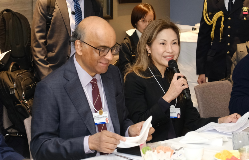

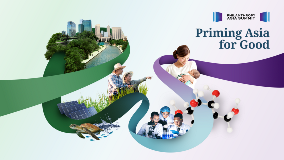



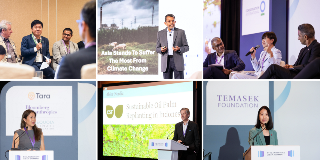
.tmb-.png?Culture=en&sfvrsn=7fea9931_1)
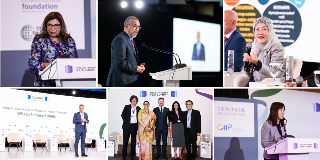

.tmb-.gif?Culture=en&sfvrsn=e13997ec_1)



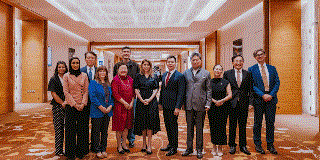

.tmb-.gif?Culture=en&sfvrsn=3f4b1163_1)
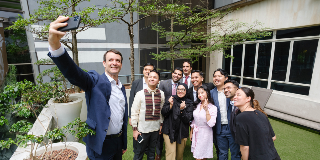
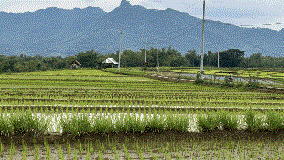




.tmb-.gif?Culture=en&sfvrsn=b5ece239_1)
.tmb-.gif?Culture=en&sfvrsn=6fb3b6df_1)

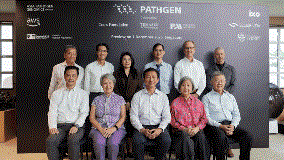

.tmb-.jpg?Culture=en&sfvrsn=fedc60fc_1)
